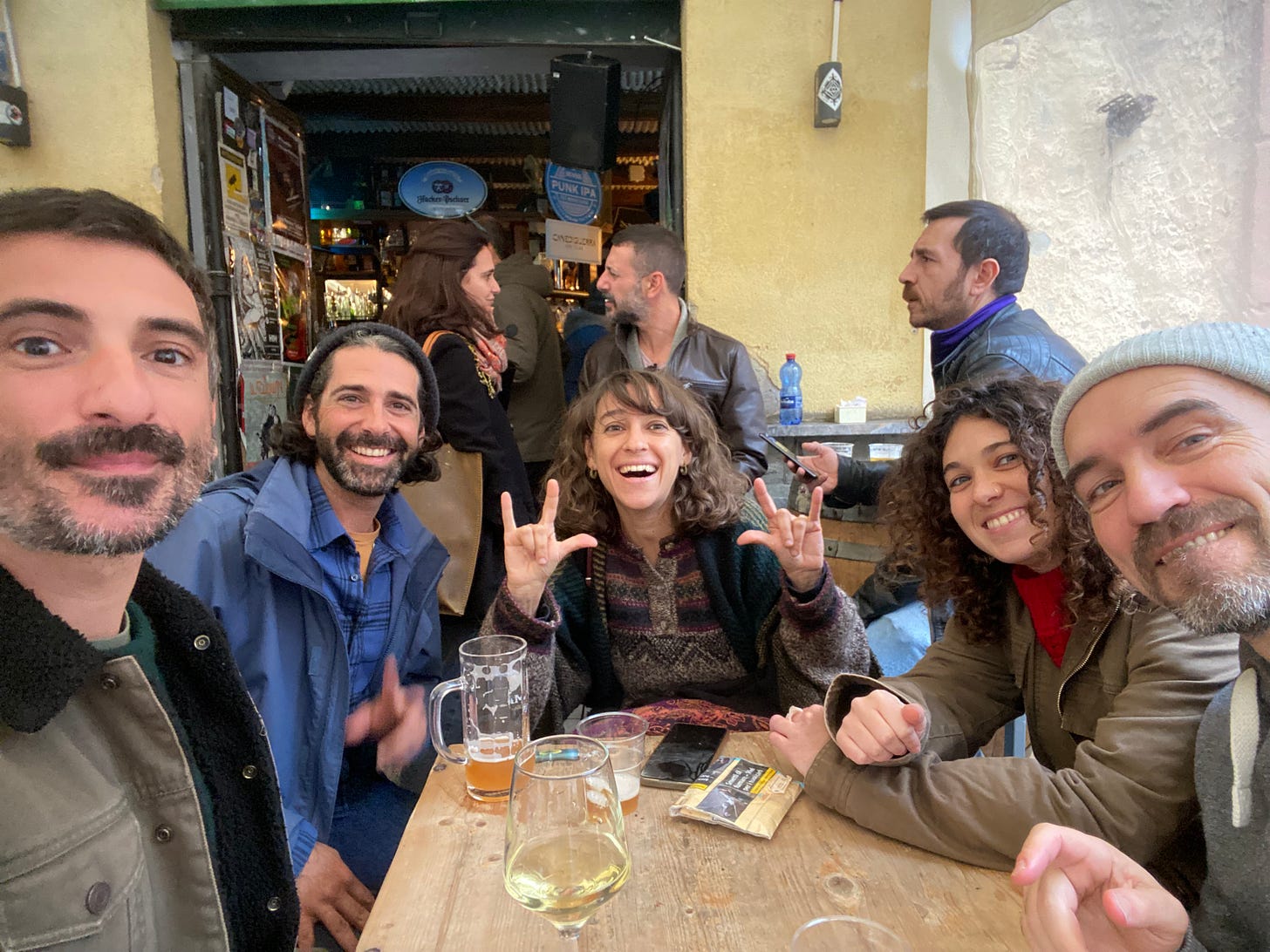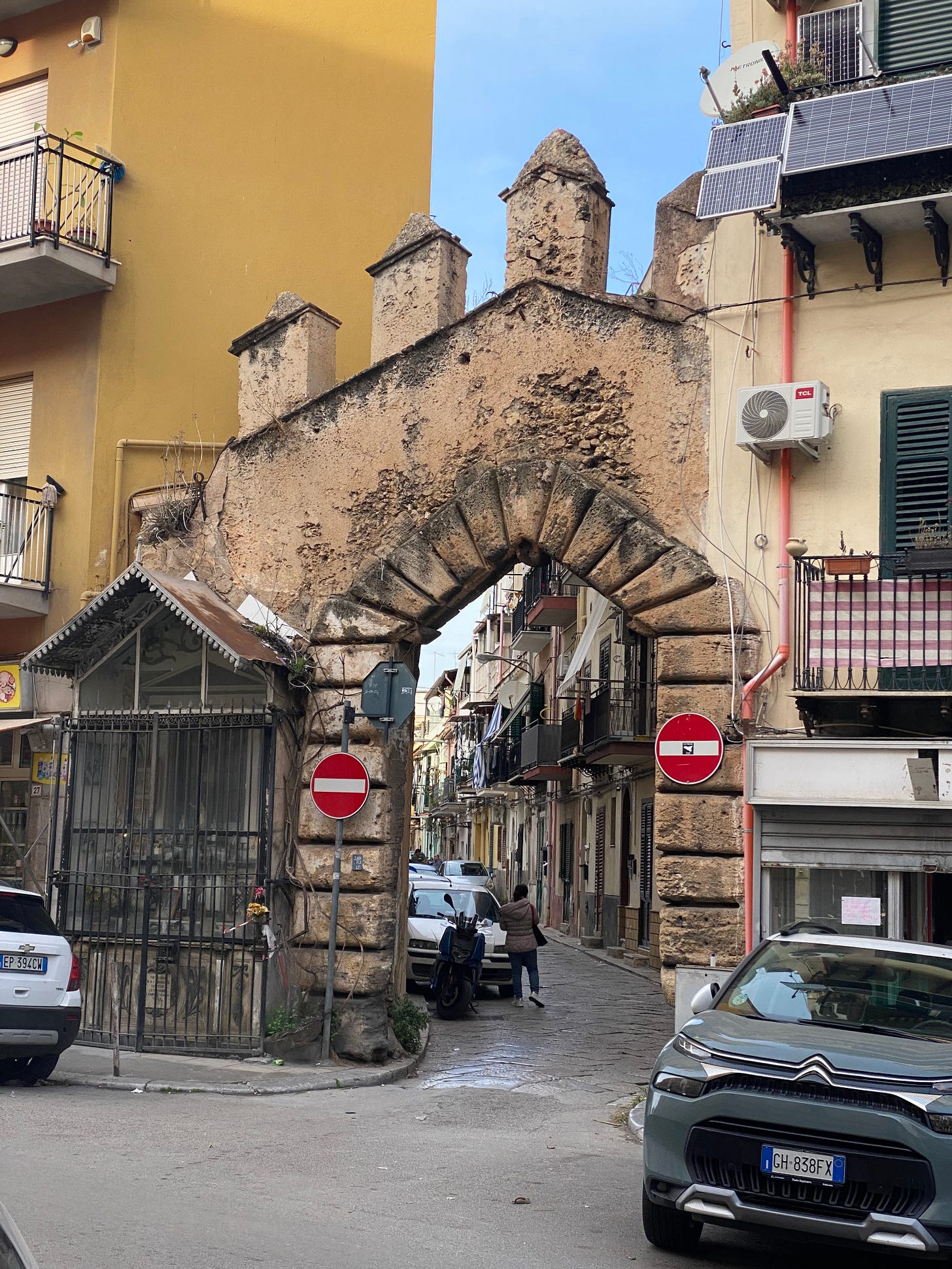Palermo: Everything Must Change
"unless you want your tyres cut with knife"
Palermo is impossible - decadent, abandoned, yet vibrant and full of life. Palermo never gives up.
Early December. We search for a free parking spot. Suddenly, in the middle of a street, a hobo appears and, with a generous gesture direct our car to a spot he had “reserved”. That’s parcheggiatore abusivo, a self-proclaimed employee of the street. We hand him 70 cents.
“Are you sure you want to pay?” I ask Francesca, the driver who grew up in Sicily. “Si, si non vuoi tutti quattro gomme tagliate con coltello” Yes, unless you want your four tyres cut with knife.
“Non sono idealisti, i Palermitani” says Michelangelo, my friend and host. Palermitans are not idealists. And it’s a deeper truth about the city and region, where surface-level changes often conceal deeper systemic inertia. Street placards testify against organized crime, deeply embedded in the societal mentality. There is no need for explicit wording like ‘mafia’. Instead, the picture shows the marina with the iconic mural representing Falcone and Borsellino, famously murdered in 1992. The context is clear and explanation not needed.
The small board above the placard reads: Se vogliamo che tutto rimanga com’è, bisogna che tutto cambi. If we want everything to remain as it is, everything must change.
The line is from Il Gattopardo (The Leopard, 1958), by Guiseppe Tomasi di Lampedusa. The book, writen by a Palermo aristocrat, is among the most famous Sicilian literary works.
The quote speaks of a political tactics that seeks to maintain the status quo by declaring superficial change, so that those already in power can stay in power. In Palermo, things continue as they were in 1992: misery of the inhabitants, piles of trash on the street, and the entangled groups of interests of the rich and the super rich. The locals do not see the mafia and the government as separate.
I flew in Palermo intending to stay with a friend. Upon landing in Airport Falcone Borcellino, I received text messages - my friend couldn’t see me due to combination of private emergencies. Organization of replacement accomodation took five minutes - I ended up staying with friend’s friend, Francesca. But Francesca had dental surgery scheduled the next day, so I finally moved to friend’s friend’s friend, Michelangelo. I asked if he minded me staying for a week. “Ma che domanda è?” he responded. What kind of question is that, man? of course you can. Inclusivity is second nature to the people in Sicilia. You feel it instantly.
Winter in Palermo is, in practice, colder than in France, Germany, or Norway. The reason is trivial - no heating. In Epyc, the friendly coworking space in Palermo’s center, it is about 16 degrees Celcius. After a day at the computer I freeze. Many coworkers wear winter furs indoors, but I didn’t think to bring one. After work I head to Michelangelo’s home, where the heating is also broken.
On the way, my mind devours city images. I want to stop at every corner and just watch.
Next morning, rushing to work through a random narrow street I stumble upon an intriguing mural by Temet Nosce - Tutto e Niente. Temet Nosce is the local Banksy of a peculiar alias. Temet Nosce is Latin for “know yourself”, or “know your limits”. That’s a long-forgotten maxim as old as our civilization, allegedly engraved in the ancient Apollo temple in Delphi. Tutto e niente , instead, means “everything and nothing”.
Tutto e niente.
Everything must change. Then everything will remain as is.
Layers of meaning, vibrant life, piles garbage on the street, ancient stone archways glued to apartment blocks - that’s Palermo.







